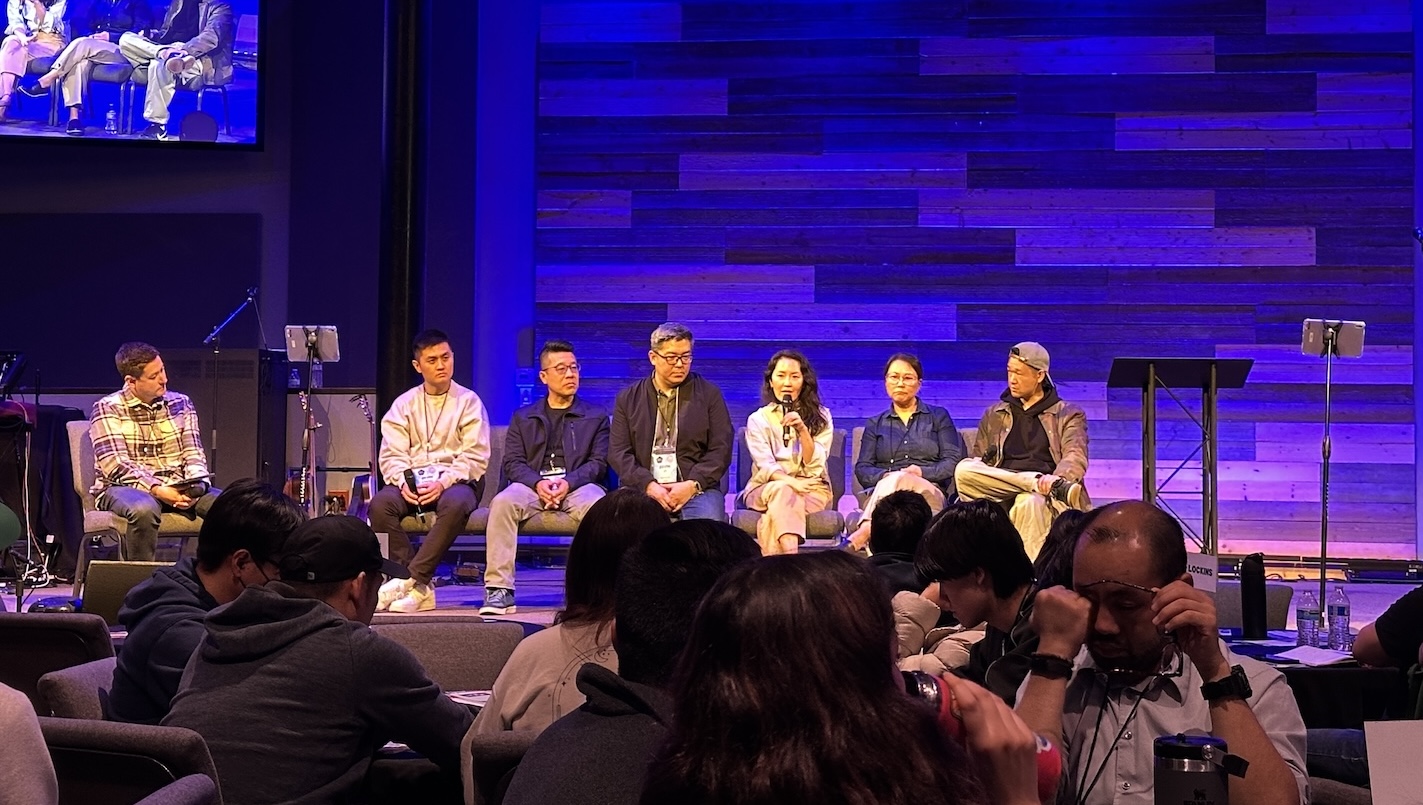On March 15, 2025, SOLA Network and Rooted Ministry hosted the first Asian American Youth Workers Training Day. Hosted at Living Hope Community Church in Brea, California, this event was intentionally designed to connect those working in youth ministry with each other, and learn from the experience of those who specialize in different areas. In the following mini-vignette, Training Day Speaker Gower Lee shares about the highs and lows of youth ministry, and encouragement she is taking away from gathering with others for this special day.
Can you tell us a little bit about who you are and how you got into youth ministry?
My name is Gower Lee, and I’m a biblical counselor at New Life Presbyterian Church of Orange County, located in Fullerton, California. Before entering my current role, I was a lay volunteer for our youth group for four years, and then served as the youth director for six years. While I’m no longer actively involved in youth ministry at my church, I feel like I’m doing youth ministry all the time at home. We have a family of five, and all three of our kids are full-fledged teens: our oldest daughter is a high school senior, our son is a freshman, and our youngest daughter is in 7th grade.
My love for youth ministry runs deep! Those middle and high school years are a formative time as teens grow more and more independent as thinkers and doers. They’re making meaning of all that’s happening around them, which makes this stage of life such a rich opportunity for ministry. And it’s a real privilege to enter into the lives of our young people and influence them with gospel truth.
Your session topic, “Teens & Stories”, focused on how to approach small groups to effectively minister to teens. What led you to decide to share about this particular topic?
The topic of learning how to more effectively draw out teens and their stories stems from my own missteps in leading youth small groups.
Small groups are a key feature in many youth ministries because they carry so much potential. When done well, they capture the very best of a vibrant, gospel-centered community. But more often than not, leading teens through small group discussion can be a real challenge. We may take great care to prepare questions intended to inspire deeper reflection, only to be met with stalled conversations and awkward silences. And when students finally open up, we begin to notice that their sharing stays in the realm of what is “safe” to avoid the risk of being honest and vulnerable about their hurts, worries, desires, and fears.
Over time, youth workers can come away from these stunted conversations not only discouraged but also tempted to assume that their students simply don’t care enough or are checked out. But with this assumption, we fail to see how our own approach to small groups may be the actual problem. Far too often, we simply expect teens to participate in sustained conversations as we do with adults, without understanding that they may not be developmentally ready for that form of engagement.
So for our session, we discussed how Christ – the Word who became flesh and dwelt among us – is our model for how we can be purposeful and creative in meeting our students where they are. We aim to know them developmentally so we can understand the lens through which they view God, themselves, and their world. And in doing so, we are better equipped to enter into their experience and show them how Christ speaks into every matter of their lives.
What are the most difficult and rewarding parts of ministering to youth today?
One of the most difficult aspects of ministering to youth is also what is most rewarding, and that is witnessing growth in our students. Visible fruit may take years, but being patient is well worth it.
I’ve met a good number of youth leaders who become defeated by their experience with teens. They find relationships lacking, conversations shallow, and don’t see evidence of personal growth and change among their students.
But to these discouraged brothers and sisters, I pray that the truth of 1 Corinthians 3:6 will reorient us: “I planted, Apollos watered, but God gave the growth.” There is great freedom in this verse. As the Lord’s instruments, we are given the blessing of demonstrating God’s active presence and grace in the life of the church. But friends, it is God – not us – who gives growth.
One of my greatest joys is welcoming former students home as they return to our church as college students – and some who are now college graduates! Years later, I see how God has faithfully grown them into maturity. I see them owning their faith in personal ways as they speak of how the Spirit is ministering to them. And I also see a generosity of spirit as they share their faith by befriending and mentoring the next generation of youth group students.
Growing visible fruit takes lots of time. But may we not forget that God is always good on His word. So let’s trust His promise to be faithful in producing fruits of righteousness in our students according to His perfect will.
Did you have any expectations for this Training day, and what are you taking away from it?
Sometimes, when we’ve been entrenched in our own local church for so long, we develop tunnel vision, leading us to forget how God is actively at work in all the churches He calls His own. So to hear how the Lord is advancing His kingdom in the various ministry contexts represented at the conference was life-giving. Every person I met expressed the same desire – for Christ to be made known and glorified through our young people.
It was a blessed time of worshipping, praying, and equipping. I came away edified and thankful for the opportunity to participate.

